#German Motor Oil
Text
Future of Lubricants and How German Mirror Oils is Adapting to New Technologies and Trends.

The world of lubricants is constantly evolving, with new technologies and trends emerging all the time. In this blog, we will explore the future of lubricants and how German Mirror Oils is adapting to these changes.
Introduction:
Lubricants play a vital role in keeping machinery running smoothly and efficiently. Over the years, lubricant manufacturers have been working to develop new products that meet the changing needs of industries, and the future of lubricants is looking brighter than ever. As a leading lubricant manufacturers in UAE, German Mirror Oils is at the forefront of this industry and is adapting to the latest technologies and trends.
Environmental sustainability
One of the major trends in the lubricant industry is a focus on environmental sustainability. With concerns about climate change and the environment growing, lubricant manufacturers are under pressure to develop products that are eco-friendly. German Mirror Oils has been at the forefront of this trend, developing lubricants that are biodegradable, low in toxicity, and free of heavy metals.
Digitalization
Another trend that is shaping the future of lubricants is digitalization. Smart lubricants are becoming more common, with sensors and other technologies embedded in the lubricant to provide real-time data on the health and performance of equipment. German Mirror Oils is keeping pace with this trend, developing lubricants that are compatible with digital technologies and can provide valuable data to customers.
Nanotechnology
Nanotechnology is also having a big impact on the lubricant industry. Nanoparticles can be added to lubricants to enhance their performance, reduce wear and tear, and extend the lifespan of equipment. German Mirror Oils is exploring the potential of nanotechnology, researching new materials and additives that can be incorporated into their lubricants to improve their performance and reliability.
Electric vehicles
As the world moves towards electric vehicles, the lubricant industry will need to adapt. Unlike traditional combustion engines, electric motors do not require oil for lubrication. However, other components in the vehicle, such as gears, bearings, and pumps, will still require lubrication. German Mirror Oils is already working on developing lubricants that are specifically designed for electric vehicles, taking into account the unique requirements of these machines.
Alternative fuels
As alternative fuels become more prevalent, lubricant manufacturers will need to adapt their products to suit these new technologies. For example, hydrogen fuel cells require a completely different type of lubricant than traditional combustion engines. German Mirror Oils is exploring the potential of alternative fuels and developing lubricants that are specifically designed to meet the requirements of these new technologies.
3D printing
3D printing is another area that is having an impact on the lubricant industry. 3D printers require lubricants to keep their moving parts running smoothly, and there is a growing demand for lubricants that are specifically designed for 3D printing applications. German Mirror Oils is developing lubricants that are suitable for use in 3D printers, providing reliable performance and ensuring that the printing process runs smoothly.
Automation and robotics
As automation and robotics become more prevalent in industry, lubricant manufacturers will need to develop products that are suitable for use in these machines. Automated machinery and robots often require lubricants that are long-lasting and can operate under extreme conditions. German Mirror Oils is developing lubricants that are designed to meet the requirements of these machines, providing reliable performance and ensuring that they operate smoothly and efficiently.
In conclusion, the lubricant industry is constantly evolving, with new technologies and trends shaping the future of the industry. As a leading lubricant manufacturer in UAE, German Mirror Oils is at the forefront of this industry and is adapting to the latest technologies and trends. From environmental sustainability to digitalization, nanotechnology, electric vehicles, alternative fuels, 3D printing, and automation and robotics, German Mirror Oils is developing lubricants that meet the changing needs of industries. Choosing German Mirror Oils as your car lubricants supplier means choosing a company that is committed to providing high-quality, innovative products that deliver reliable performance and help you achieve your business goals.
#Car Lubricants#Lubricant Manufacturers in UAE#Engine Oil Company#German Motor Oil#Lubricant Suppliers in UAE
0 notes
Text
König~Worship the King
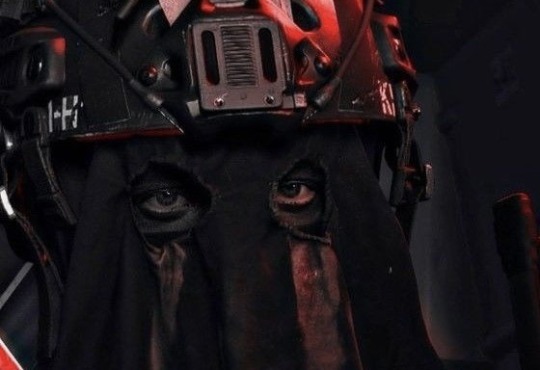
Your eyes traced the huge mass of muscle in front of you. Fresh from the field, he looked exhausted, primal- his canvas pants still splattered with mud and god knows what else. Arms shiny with sweat and rain, leg bouncing absentmindedly, his head was still a void, swimming with pictures of death and devastation. His eyes were focused on a bowl of stew, dwarfed by his huge, muscled hands. Pale fingers against white ceramic.
‘You can take the mask off to eat your food, I have to clean up your face anyway. In fact I should look at that first.” Your voice was soft, hesitant. Afraid of startling him, even though little could do so.
Dark fabric folded as he shook his head gently. “After. I don’t want it to…” he searched for the word in English, “to scare you. Yet” His voice was rough and tired, laced thickly with an accent, german. Your heart twinged at his words.
“You couldn’t scare me.” You attempted a reassuring smile. König. King. A very fitting name for the enigma in front of you, and yet in some ways not fitting at all. True he was imposing. Large. Stately. Yet he was gentle, anxious, even, when he was in close proximity to others. Under scrutiny. He was anxious when it came to people, most of all you. He was good at hiding it though, to you it seemed an aloofness, perhaps even a polite disinterest, that he felt towards you. A simple nod in greeting as he passed you was the most you could hope to receive.
Now you stood in between his enormous thighs which he’d spread just far enough apart to avoid grazing yours, the air between them thick with tension. You rolled up his dark sleeve, doing your best to ignore the rippling muscle beneath. They way it flexed which each ascent of his spoon, before it disappeared underneath black cloth, then reappeared, empty. He barely flinched as you dabbed an alcohol pad across the gaping wound on his shoulder. Blood glistened carmine.
Oxymoron was a more fitting name, you thought. Perhaps it was too long for a nickname. He truly was a paradox, though. So colossal, yet reserved. So immense yet quiet, even gentle. He was a man of few words. A wave waiting to crash, or a volcano waiting to erupt.
Your voice broke the silence, surprising you both. It felt small. “Feel okay?” He was nervous, although you couldn’t see it, underneath the mask. He wasn’t really afraid of you, more afraid of hurting you, or scaring you. With his weight. His scars, his is strength.
His eyes raised to meet yours. Although he was sitting, they were level with your own. A cold, pale olive green. “Ja. Thank you. I am sorry for waking you for this little scratch.” When you’d gotten a call that he’d needed a small patch job, admittedly you’d jumped at the chance to see him. You’d been drawn to the Austrian giant since you’d arrived a month ago. You liked his presence, it was safe, a shield to all else. Nothing could touch you with him there. No amount of horny jeering men, or loaded guns.
“It’s not a just scratch, König, its a big gash. And I haven’t even gotten to your face yet. Plus, I couldn’t sleep anyway, I’m happy to do it.” You rambled, feeling the burn of his eyes on yours, studying your face as you concentrated, threading a sterile needle. You stepped forward, into him, bumping his leg. He smelled like earth, and motor oil. Faintly of cigarettes and metallic blood. The heady odour was thick, collocating with the rubbing alcohol of your sterile office.
“Deep breath.” You felt silly, instructing a man who’d murdered countless men in the past week to do a breathing excersise, but he obeyed, the soft, raspy sound making your knees weak, and your imagination run wild. You blinked and regained focus, before puncturing the skin. His eyes fixed on your face, unwavering. You counted the stitches. Eleven, black and neat, in a row. “Aaand…done.” You cut the thread. “And not even a flinch.” You smiled at him, and his eyes crinkled, barely.
You gently rubbed it with ointment and wiped your hands on a towel, blood staining it crimson. You noticed his thighs now resting against yours. They were warm, and dirt from them stained your kaki pants but your hardly cared. “Ok. Ready for the mask?” You felt nervous, more nervous than he looked. It felt monumental, an enigma becoming real, smoke condensing into man.
You’d thought about what he looked like, but only in patches, certain features imagined while the rest of the picture was more of a blurred haze. Pale skin and light eyes. Dark or light hair? A sharp jaw or weak and soft? You couldn’t really imagine him being ugly, and truly, you felt you’d be attracted to him regardless, like opposite poles of a magnet. North and south. Dark and light, soft and hard.
He cleared his throat, and set the empty bowl down beside him. His eyes held yours vehemently, and large hands raised black cloth, revealing a pale, broad column of neck, a white scar gracing one side. You wanted to graze it with your lips. His lips were split, bitten and red. And inviting. A glint of teeth and a jaw, sharp with a whisper of stubble. The cloth clung to a splatter of blood and small cuts now integrated with old scars, and a few pieces of shrapnel that traveled up to a deep, glistening slice. Caked blood ran down his temple. His nose was sharp and slightly crooked, veering to the right in an endearing way, as if it had been broken when he was a child.
Then, his eyes, deep set and soft, framed with long lashes and crowned with sharp brows, one interrupted by a large, aged scar. Finally, hair, light, light brown, almost blonde, with a tinge of red, tumbled out. It was tied back with an elastic, but not long, as if he was in need of a trim, shorter pieces falling across his forehead. His head tilted back as he looked at you, silently, daring you to react to his intimate sign of trust.
You breathed out. It wasn’t what you had expected. His face was, interesting. Attractive. Younger than you’d imagined. A sharp canine pressed into his lip. You let out a breath, and raised a hand to his jaw, feeling it clench beneath your fingers, tilting his face up towards artificial light. His lips parted, adams apple bobbing. “You should’ve let me do your face first.”
“Sorry.” His voice was soft, ragged.
You reached for a pair of pointed tweezers and began removing each piece of shrapnel from his face. The night was quiet, save for for soft breaths. His was hot against your cheek. “König.” Chunks of metal and stone clanged into a small aluminum bowl. He hummed in response.
“You could never scare me.”
He smiled softly at you, slightly crooked.
Without meaning to, your thumb stroked the soft skin of his jaw. His legs tightened against you, barely, but your heart quickened against your ribcage.
Again, you soaked the wounds in alcohol. You could tell it stung. His fingers began absentmindedly drumming against your hip, leaving hot tingles in their wake. You moved to the cut on his lip, he hissed quietly as you made contact with the cotton pad. Your eyes were focused, pupils blown wide as you stared at his lips. His hot tongue peeking out from behind pink bloodied skin.
Your voice was quiet, distant, “You have a pretty bad split lip, I’m gonna put a little stitch in it.”
He swallowed hoarsely, “Okay.”
You were close, so close to him, breaths mingling in the hot air. His scent enveloped you. He enveloped you. You weren’t particularly small, but to him you were. Fragile. The needle ruptured his lip and his hand gripped at your waist, heavy and large. You leaned into him, lower stomach barely grazing the split of his pants. He shifted in thick canvas.
Your hand shifted, cupping his jaw as you cut the thread. His eyes were heavy with fatigue, and something else. You looked at each other with neediness, both in awe of how the other contained all that they could ever want- him to satiate your emptiness, you to soothe his aching burn. A month of passing glances and unsaid words threatened to morph into action; spurred on by the arousal of seclusion and stagnation after the high of adrenaline, the heady scent of blood, metal, alcohol.
You leaned in and felt his hand tighten against you hip, You were inches from him, the air between you buzzed as opposites attracted, pulled you towards him. His mouth widened as he leaned into you. Your soft, plush lips grazed his, barely, and he pulled you into him, emitting a soft sound. Mouths opened wide with need. He was metal, cigarettes and gasoline, the taste and smell making you unsteady, faint. You gripped his shirt tightly, his mass keeping you from falling, or perhaps from floating away.
Deft, strong fingers found the back of your head. Scalp prickling as he pulled at your hair. You were slick.
He groaned slightly into your mouth, and your hands found his hair, fisting it free from the elastic band, copper locks brushing your forehead, stubble brash against your reddening cheeks.
His large warm hand traced from your hip down, raising your leg to straddle his thigh. Hot, hard muscle against your softness. You let out an involuntary airy moan as the seam of your jeans jabbed into your clit, cunt clenching around nothing, deprived and empty.
You lifted your other leg to straddle him fully, clothed cunt contracting at the friction against pelvis, you could feel him, large, hard, heavy and confined. It made you hot with need. You pulled back to stare at him, pupils blown, lips puffy. His hips bucked up into you, searching for friction and release, his brows furrowed. Colossal hands found your waist beneath your shirt, opposite fingers almost touching around your circumference. His fingers were calloused and rough. Feeling his hot skin against yours made you reel with thoughts of at the way he dwarfed you, dominated you with the simplest of actions. The fact that he could fill your emptiness, stretch you to the brink, overwhelm you, crush you- was inebriating.
“I-” he searched for the right words, “I want you. Ich brauche dich.” You smiled at his mother tongue appearing, as it often did in states of intoxication.
You pressed your mouth to his neck, with an open mouthed kiss, feeling the bump of his scar as he swallowed, and looked up at him through wet lashes. Grinding your hips against him, making him groan, cock twitching, hyper sensitive from months of neglect. You maundered, “Let me make you feel good, König.” Your voice was airy and laced with fervour. His eyes were glassy and lidded as he looked down at you, hair falling across his forehead, glistening with sweat. His head swam, the situation feeling far to good to be true, an intoxicated dream or adrenaline spurred hallucination. His blunt fingernails clutched at your waist harshly, leaving half moons in their wake.
Your eyes flickered to a stain of precum darkening the crotch of his thick pants as you rose to your feet, his hands gripped his thighs in restraint, watching you in anticipation. Then, you knelt to the ground to worship your king.
#cod#konig fluff#konig fanfiction#konig modern warfare#könig cod art#könig cod#könig mw2#könig call of duty#könig imagine#cod imagine#cod smut#könig smut#cod art#könig#könig modern warfare#konig call of duty#konig#konig fic#konig x you#könig x reader#könig x oc#könig x you#könig x y/n#könig fanfiction#call of duty#mw2#mw2 fanfic#cod mw2#konig mw2#call of duty mwii
4K notes
·
View notes
Note
holds out a bowl like a sickly and starving victorian child.... please sir......... fem strade headcanons?? literally anything fem strade??? please...... coughs weakly.... looks up at you with big sad eyes.......... coughs weakly again...........
lmaooooo aw here's your food, buddy <3 eat up (cus i'm eating too)
literally the same as canon strade, just with (slightly) bigger boobs
cis bi long-haired butch
she probably calls herself a dyke just to piss people off and g-d, she's fucked enough girls that she's entitled to it
either a super mellow relaxed lay or the scariest german femdom you can imagine
very similar to canon, basically the neighbour that everyone likes.
she's always doing odd jobs around the neighbourhood, the guys like her cus she can drink a beer with them and get super crass and gross, the girls like her because lesbianism <3
smells of sweat and sawdust and motor oil and cigar smoke
heavy, slightly saggy, big ol breasts...she rarely wears a bra so her nips are always pressed up against her wife beater (dark nips too, don't wear white, girl) (please wear white)
got a nipple piercing in her berlin eurodyke phase
the strap is dragging on the floor. it's got splinters. and you're taking it, whatever hole she has to work with
wields the strap like a fucking pro too and could eat pussy for hours (less of a fan of sucking dick, but meh)
speaking of pussy. full bush. bush that like. blends into her thighs and goes up her tummy as well. thick, wet bush <33
she's got mad body hair as well. super thick all over and she does not do a single thing to it. she's very much a natural kind of girl
calling her daddy is not optional.
you're doing it or she's gonna beat the shit out of you
or maybe you're into that? hahaha, what a sick puppy you are <3
#butch doms help me...save me butch doms...save me#qs#grease trap#strade btd#strade ykmet#girlfriend to death
67 notes
·
View notes
Text
His Last Bow
Originally titled in full "His Last Bow. The War Service of Sherlock Holmes" and later "His Last Bow: An Epilogue of Sherlock Holmes", this was originally published in 1917.
It is the final story in His Last Bow, the final short story in the canon covered by Letters from Watson and agreed by all the key chronologists to be the final canon appearance of Holmes and Watson.
Sir Arthur Conan Doyle had openly supported British entry into the First World War in 1914.
The story came about after a visit to the Western Front in 1916; asked by a French general what Holmes was doing, Doyle had responded that he was too old to serve. He then decided to write this story as a means of boosting morale.
To put it mildly, the British public had gone a bit spy-crazy in the lead up to the war; fearing "Teutons serving them croutons" i.e. Germans living in the UK acting as intelligence agents for the Kaiser.
The Riddle of the Sands is one such work of popular literature on this theme, which is the subject of Letters from Carruthers coming in September.
There was also the fantastical works of William Le Queux, who started off with the French and Russians as his enemies before switching to the Germans; he also had his works serialised in the Daily Mail, a British middle-market tabloid that was founded in 1896 and has been happily engaging in right-wing sensationalism since to the point Wikipedia has banned them as a source. Le Queux for his part believed the Germans were out to get him for exposing their spy networks - he hadn't, they weren't and the Metropolitan Police refused him protection.
The Benz company had produced the first practical motor car in 1885; they of course later merged with Daimler to become Mercedez-Benz. I cannot find a 100hp example of their vehicles.
The German Chancellor in 1914, Theobald von Bethmann Hollweg, was a moderate, who reluctantly went along with many German policies like unrestricted submarine warfare and tried to initiate peace proposals on a number of occasions in the war before being ousted in 1917.
Flushing is the historical English name for the Dutch port of Vlissingen; it had a ferry connection to Sheerness until 1994.
At the outbreak of war, diplomats on both sides were allowed to return home unmolested, after locking down their embassies and burning anything sensitive they could not take with them.
Britain, France and Prussia had signed a treaty in 1839 guaranteeing the neutrality and independence of Belgium. The German invasion of the country on 3 August gave the UK justification for war and moved a Cabinet divided over the matter to firm unity.
There was a fear of Irish civil war at this point; the Liberal government, reliant on Irish and Labour support for a Commons majority after the two elections of 1910, had passed legislation creating a devolved government for the island, called Home Rule. This was vehemently opposed by Ulster Protestants and both sides were receiving weapons - from Germany in fact - in preparation for a fight as Whitehall tried to arrange a compromise. The Germans in fact believed the British would be distracted by a civil war, but in fact the Home Rule legislation was suspended for the duration and both militias decided to support the war effort. That stopped things... until the more radicial Irish Republic Brotherhood launched the Easter Rising of 1916.
"Window-breaking Furies" refers to the suffragette movement that sort votes for women, some of who engaged in direct action like breaking windows and also planting bombs or arson, although they made sure the latter was done when the buildings were empty to avoid killing anyone. These tactics were as controversial at the time as the tactics of modern-day groups like Just Stop Oil. When the war broke out, the suffragettes stopped their militant actions and supported the war effort; their imprisoned members being released as part of an amnesty.
John Bull is a national personification of the UK, typically a stout middle-aged man in a Union Jack waistcoast, frequently seen in cartoons at this time. He rather fell out of popular use post-war and is rarely seen today, unlike Britannia, who remains a widely used figure.
The Rosyth Dockyard was built from 1909 for refitting Royal Navy ships and submarines; although now privatised, it retains that role and is currently building the five Type 31 frigates.
Carlton Terrace was the home of the German Embassy until 1945; after the war, the property and its contents were sold off at auction. The Federal Republic of Germany set up at Belgrave Square in 1951 and remains there to this day.
Junkers were the land-owning aristocracy of Prussia, who exercised considerable political power up until 1945, at which point most of their holdings ended up in the USSR, Poland or what became East Germany. The land was broken up, usually ending up in collective farms; accused of war crimes, those Junkers who ended up in Soviet hands frequently ended up in NKVD camps or even executed. Their descendants did not get them back after reunification.
The King's English is another name for Received Pronunciation, the "standard" dialect and accent of British English.
Tokay or Tokaji is a sweet wine from the Tokaj regions of Hungary and Slovakia, the designation being protected under EU law in a similar way to Champagne. Imperial Tokay, which was the highest quality Tokaji Essencia, was reserved for the Austrian imperial cellars, often being passed to other European monarchs as gifts. This stuff is still drinkable after over 200 years and even the relatively new stuff isn't cheap.
A naval flotilla would be based at Harwich in both World Wars.
The reference to Holmes being sixty here is where the common estimate of 1854 being his birth year comes from.
Portland is a prison and young offenders' institution in Dorset. Notable past inmates include George Edalji (whose miscarriage of justice was exposed by Doyle), John Babbacombe Lee ("The Man They Couldn't Hang") and the controversial comedian Roy "Chubby" Brown.
Fratton is an area of Portsmouth.
In reality, the Home Section of the Secret Service Bureau, later MI5, had managed to identify the key German agents by monitoring their postal correspondence. The police then rounded them up in August 1914 and once the cross-sea cables were cut, contact with any agents in the UK became close to impossible. Little intelligence of any use came from them in any event; the Germans seem to have not even been aware of the British Expeditionary Force being sent to France, which was hardly a small event. Gustav Steinhauer, head of German naval intelligence's British section, got subjected to a rant about his agency's incompetence from the Kaiser that lasted the better part of two hours.
Twelve German spies would be executed during the war, eleven by firing squad at the Tower of London, which hosted its final execution (also of a spy) in 1941.
Skibbareen is a town in County Cork, now in Ireland.
The final speech by Holmes at the end also featured in the 1942 Basil Rathbone film Sherlock Holmes and the Voice of Terror, based on this story.
So Holmes and Watson drive off into the sunset. What happened to them after that? All we know is that both survived the war and at some point Dr Watson stopped writing about his dear friend. They deserve to have had a long retirement.
I will be doing these for the individual chapters of the novels next year; I have already done ones for the first two chapters of A Study in Scarlet that I will repost.
46 notes
·
View notes
Text

László Moholy-Nagy (Hungarian, 1895-1946)
Untitled, 1939
Fujicolor Crystal Archive print, 27.9 x 35.6cm

László Moholy-Nagy (Hungarian, 1895-1946)
Untitled, 1937-1946
Fujicolor Crystal Archive print, 27.9 x 35.6cm
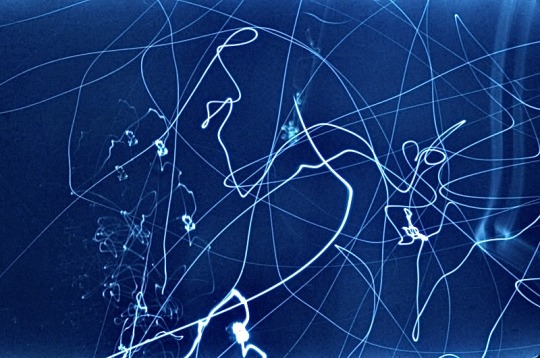
László Moholy-Nagy (Hungarian, 1895-1946)
Untitled, 1936-46
Fujicolor Crystal Archive print, 27.9 x 35.6 cm
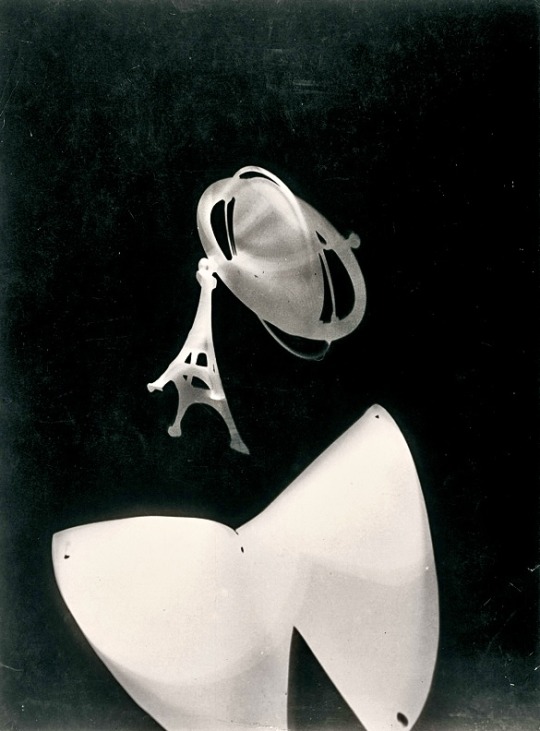
László Moholy-Nagy (Hungarian, 1895-1946)
Photogram with Eiffel Tower and Peg Top, 1928
Silver gelatin photograph, 38.7 x 29.9cm
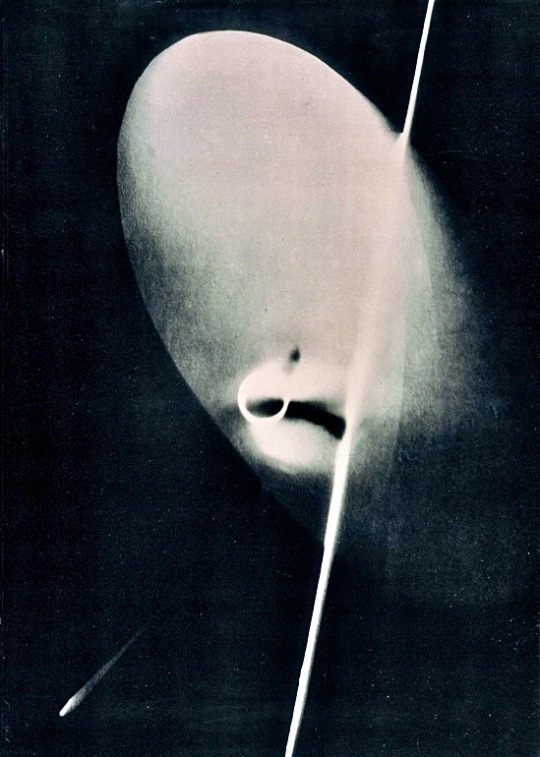
László Moholy-Nagy (Hungarian, 1895-1946)
Photogram No. II, 1929
Silver gelatin photograph, 95.5 x 68.5cm

László Moholy-Nagy (Hungarian, 1895-1946)
LIS, 1922
Oil on canvas, 131 x 100cm
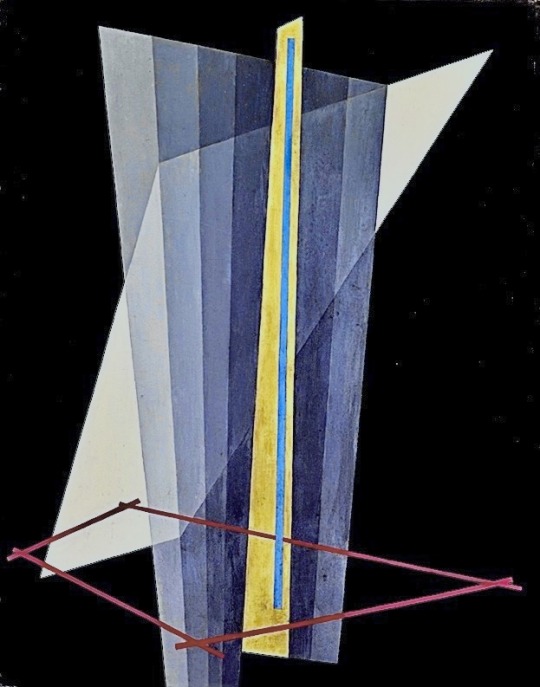
László Moholy-Nagy (Hungarian, 1895-1946)
K XVII, 1923
Oil on canvas, 95 x 75cm

László Moholy-Nagy (Hungarian, 1895-1946)
A 19, 1927
Oil on canvas, 80 x 96cm
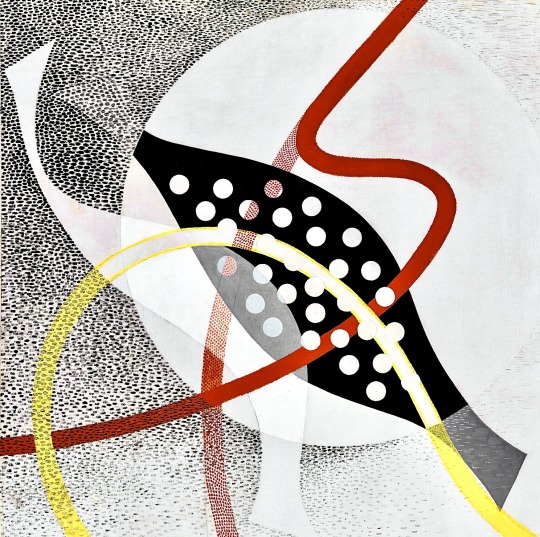
László Moholy-Nagy (Hungarian, 1895-1946)
CH BEATA I, 1939
Oil on canvas, 119 x 120cm
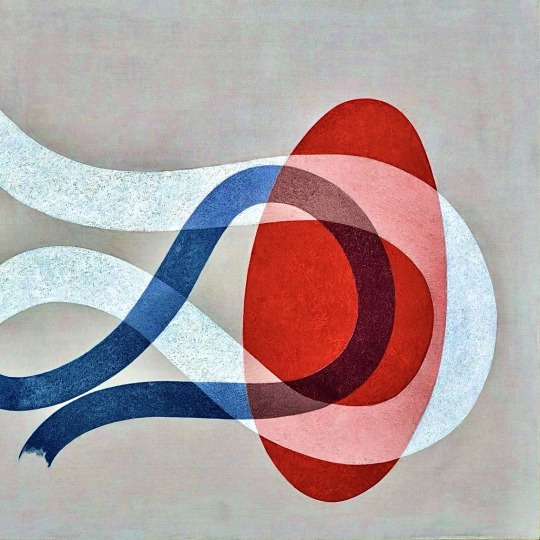
László Moholy-Nagy (Hungarian, 1895-1946)
CH SPACE 6, 1941
Oil on canvas, 119 x 119cm
László Moholy-Nagy Retrospective exhibition at Schirn Kunsthalle, Frankfurt
8th October 2009 - 7th February 2010
Artworks © Hattula Moholy-Nagy for the Estate of László Moholy-Nagy © VG Bild-Kunst, Bonn 2009 / Artists Rights Society (ARS), New York
ART BLART_ ART AND CULTURAL MEMORY ARCHIVE
Curated blog and article by Dr. Marcus Bunyan:
•
•
▪️YouTube silent video >> László Moholy-Nagy Ein Lichtspiel Schwarz Weiss Grau (Light Play: Black, White, Grey) [1930 / 6mins.+34secs.]:
youtube
Ein Lichtspiel Schwarz Weiss Grau (Light Play Black White Grey) is perhaps Lázló Moholy-Nagy's best-known film work. It features his Light-Space Modulator, also known as a lighting fixture for an electric stage.
Light-Space Modulator is a key work in the history of kinetic art and even new media art, and therefore one of the most important works of art of its time.
Initially conceived by Moholy-Nagy in the early 1920s and built between 1928 and 1930, its completion required the involvement of a number of collaborators.
It was intended to be the centrepiece of the Contemporary Room at the Provinzialmuseum in Hanover, planned (but never realised) by Moholy-Nagy and Alexander Corner, the museum's director.
Light-Space Modulator was exhibited in 1930 at an exhibition in Paris on the work of the German Werkbund. From the point of view of the object, it forms a complex and beautiful set of metal, plastic and glass elements, many of them movable by the action of an electric motor, surrounded by a series of coloured lights.
Moholy-Nagy used it to produce light shows that he then photographed or filmed, as in the case of the film shown here. Although in black and white, the film manages to capture the kinetic glow of the sculpture.
•
•
▪️YouTube video >> László Moholy-Nagy: Proto-Conceptual Artist [2019 / 5mins.+36secs.]:
youtube
Coinciding with the Bauhaus centenary, Hattula Moholy-Nagy and Daniel Hug, the daughter and grandson of László Moholy-Nagy, consider the lasting impact of the artist’s work today. Hauser & Wirth’s exhibition in London dedicated to Moholy-Nagy examines his influence as a proto-conceptualist, whose work interrogated the role of the art object and the artist in society, anticipating questions posed by subsequent generations of artists.
László Moholy-Nagy is on view at Hauser & Wirth London from 22 May – 7 September 2019.
•
•
▪️ YouTube video >> Moholy-Nagy: Future Present exhibition overview at the Guggenheim [2016 / 3mins+14secs.]:
youtube
Curator Karol P. B. Vail provides a brief introduction to Moholy-Nagy: Future Present, a comprehensive retrospective of the work of László Moholy-Nagy (1895–1946), on view at the Solomon R. Guggenheim Museum, New York, May 27–September 7, 2016. To learn more visit https://www.guggenheim.org/moholy.
•
#Art & artists#Artworks by Lázló Moholy-Nagy#Paintings#Drawings#Photography#Photograms#Sculpture#Light sculptures#Cinema#Films#Stage set design#Typographical projects#Kinetic art#Experimental art#New media art#Modernism#Abstraction#Conceptual art#Bauhaus - Germany#New Bauhaus - Chicago#Schirn Kunsthalle - Frankfurt#Guggenheim Museums#Hauser & Wirth - London#Hattula Moholy-Nagy#Estate of László Moholy-Nagy#VG Bild-Kunst Bonn#Artists Rights Society (ARS) New York#Dr. Marcus Bunyan#Art Blart#YouTube
15 notes
·
View notes
Text
PT.1
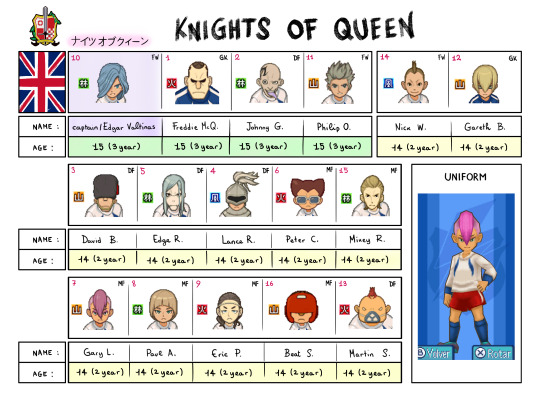
1) Freddie McQueen: "Rages that he will enter into the MI6 as a spy in the future."
2) Johnny Gascoigne: "He might dress and act like a punk, but deep down he's a real softie."
3) David Buckingham: "Royal family enthusiast who buys anything with a royal warrant."
4) Lance Rotten: "Clinging to the rights and privileges of the aristocracy, he asserts his right to lead"
5) Edge Ripper: "A heavy metal vocalist. He is popular enough to perform abroad at his age."
6) Peter Cole: "A music buff who insists that the British music scene is the best in the world."
7) Gary Links: "The scones he makes are perfect in any English tea!"
8) Paul Appleton: "He wants to form a band that will go down in history, but members don't gather."
9) Eric Purpleton: "An expert of tennis that was said to compete at Wimbledon. He went to soccer due to wrist injuries."
10) Edgar Valtinas: "A quiet, brave leader. One of the best players who has both ability and popularity."
11) Philip Owen: "He wants to succeed in English cooking and prevent anyone from saying that it's absolutely bad."
12) Gareth Barrett: "Born in the house of a butler and is an expert at entertaining people."
13) Martin Squall: "He worked well to take care of a horse who had successfully won a Derby!"
14) Nick Woodgate: "He's seriously thinking about opening a school for wizards."
15) Mikey Richards: "There is no junior high school student who exceeds him by the knowledge of suits and the technology of tailoring."
16) Beat Smash: "Sometimes makes a mistake by touching the ball with his hand because he is good at rugby."
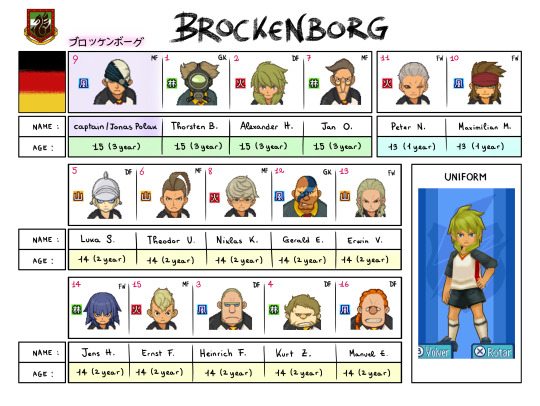
1) Thorsten Berger: "His family are brewers, but he prefers a nice glass of Apfelschorle."
2) Alexander Hausen: "This player always acts logically, no matter what kind of situation he's in."
3) Heinrich Fritz: "Because of his strange hobby of sharpening knives, he is often mistaken for a baddy."
4) Kurt Zabel: "If he doesn't get his daily portion of Kartoffelsalat, he's got no energy."
5) Luka Schmitt: "He is big on tanks and goes around tank museums in Europe."
6) Theodor Ulrich: "His civilized manners and steel temperament make him the German model athlete."
7) Jan Oldeno: "Since he thinks that Germany's technical strength is the best in the world, he goes around recommending German products to people."
8) Niklas Kuster: "People call him "Niklas of Blitzkrieg" due to him breaking through opponent's lines with his speed."
9) Jonas Polak: "His dream is to go on a manned flight to Mars with a rocket that he made."
10) Maximilian Milatz: "He believes that German wine is the best in the world, but has never drank wine."
11) Peter Nimke: "He loves German poetry and always carries a collection of poems by Heinrich Heine."
12) Gerald Enders: "He can't wait to pass his test and get behind the wheel of a smart German motor."
13) Erwin Völz: "He is interested in ecology more than anyone else and keeps in mind to always act earth-friendly."
14)Jens Hoffmann: "He is studying to be more of a composer than Beethoven in a music school."
15) Ernst Frodeno: "He's from Breman, but is driven to distraction by caterwauling farm animals."
16) Manuel Ewers: "An accomplished sausage maker who keeps his team well supplied with protein."

1) Nasser Mustafa: "Powerful tribal clan's son. He is said not to come back until he wins the tournament."
2) Far Farouk: "Good at making cakes by processing the fruit of a date palm."
3) Bjorn Kyle: "A boy who seems to live in the shadows. He pulls the team with high mobility."
4) Djamel Djammadu: "He is trying to aim the country to be less reliable on oil and more focused on tourism."
5) Musa Sirer: "This player wants to improve Qatar's manufacturing base and diversify."
6) Yusuf M'hadi: "This player deeply respects tribal traditions, and wouldn't like to live away from home."
7) Sulai Sulaiman: "He is thinking about a method to have seawater to freshwater cheap for everyone in Qatar."
8) Seiyd Armand: "This player is concerned that his country's economy is dependant on oil exports."
9) Messer Jassim: "This player is an expert at finding natural pearls. They're pretty pricey these days."
10) Zack Abdullah: "Best among the tribes in taking care of camels. He seems to hear anything that the camel says."
11) Majidi Ismail: "A master at catching monitor lizards in the desert. However its better not to show a girl."
12) Talal Hamad: "His dream is to enter the Middle East's best TV station and send news to the world."
13) Hassan Ahmed: "This forward is known as the Eagle of Qatar for his swooping attacks."
14) Khalfan Jibril: "This player is keen on preserving ancient mosques, and the fine arts of the Middle East."
15) Rajab Ismail: "He is going to make a novel about Qatar's social problems so it can appeal to everyone."
16) Adel Siddique: "He wants to make a popular movie that is loved by everyone in Qatar."
#brockenborg#knights of queen#inazuma eleven#desert lion#ffi#idk if that's just me#but it's always unnerving trying to find all the info#in one place#so i made this#hope it can be helpful for references for fanfictions#fanarts#etc
14 notes
·
View notes
Text
There's a developing story in german railroads that I need to share with you all because it has become a meme at this point. It concerns this type of vehicle:

Source: Falk2 on Wikimedia commons, CC-BY-SA
This is the class 711.1 overhead line maintenance car, one of several different types of similar vehicles. It is designed to fix any problems that may develop with the overhead lines. It's diesel-powered, obviously, and it has a big workshop on the inside full of all sorts of copper equipment, and on the top, a special pantograph for checking wire alignment and a working platform from where you can actually touch and work on the wires.
The official nickname for them when they were introduced was Hubarbeitsbühnen-Instandhaltungsfahrzeug für Oberleitungsanlagen (lift working platform maintenance vehicle for overhead line equipment), or in short HIOB, the german spelling of the biblical Job, which was definitely not a bad omen at all.
22 of these were built between 2002 and 2004, and they (as well as other similar vehicles) are stationed all over Germany to react quickly to any issues with overhead lines, as well as do various forms of regular checks and maintenance. The 711.1 is special, though: It keeps catching on fire.

Picture by fire brigade Bienenbüttel, found at https://www.az-online.de/uelzen/bienenbuettel/flammen-bahn-1605363.html
The first one burned down in 2012. Nobody got hurt (in any of the following incidents), and it was treated like a freak accident. Specifically, the investigation revealed that it's related to how the train functions. Normally, for a diesel train, you either have a direct mechanical connection from the motor to the driven wheels (sometimes including something like the torque converter in an automatic gearbox), or sometimes the diesel engine drives an electric generator and electric motors at the wheels drive the train. This, on the other hand, has a hydrostatic transmission: The main engine drives a pump that creates pressure in an oil system, and this high-pressure oil is then used in motors at the wheels to drive the train.
The good thing about this arrangement is that the train can run both fast (up to 160 km/h or 100 mph) to quickly reach the place where it's needed, but also really slowly, walking pace or slower, so someone standing on the roof working platform can check every part of the wires carefully.
The bad thing about this arrangement is that the oil in the system is flammable. If there's a leak, it sprays out, and if that spray hits something hot, it can ignite. That's what happened here. Okay, gotta do better maintenance, alright.
Then it happened again, in July 2020.

Source: German Federal Police, via official accident investigation report
The cause was pretty much the same, but the effect was much more noticeable. The train was underway on a training run when it came to a stop for no clear reason. The staff activated the parking brake, got out, and noticed that their train was on fire. As they were calling firefighters, however, the train suddenly started to move. The engineer actually climbed back on board and tried to activate every braking system the train had, and it had a lot of them; this one was specifically equipped for more mountainous railway lines. But none of it worked, and the engineer jumped back out at still low speeds (no reported injuries).
It kept rolling downhill for 22 kilometres (about 14 miles). Station staff tried to stop it by putting signals on red and hoping for the automatic train control system to stop it, but train control systems can't do anything if there are no brakes. Others tried to put wheel chocks on the rails, but those are for parked trains, fast trains will just throw them to the say. So on it went, burning more and more. In the end the railway decided to find a nice save spot where nothing important was around and firefighters would have easy access, and let it derail there. That's what the picture above shows.
What happened? Well, the same as before, but this time with an additional twist. The fire had destroyed all normal braking systems. It hadn't destroyed the parking brake, but on this train, the parking brake is electrically controlled. You don't need to electricity for it to stay active, but you need it to activate or deactivate it. The fire had already destroyed the relevant electrical lines when the engineer thought they activated the parking brake.
Two trains of the same type burning down for the same reason is scary and warrants action, even if it's eight years apart, and the accident investigation report lists a number of steps already taken and others that were planned, like more checks for leaks, new procedures for leaving the train so it doesn't roll away, perhaps changing some equipment out.
And it seems to me personally that these changes had an effect. Of sorts.
youtube
You can ignore the narration (which consistently calls it an engine even though it's a rail car), just admire these pictures of a driverless burning train coming towards you. Yes, in January 2023, another of these trains caught fire, it rolled away again, and got derailed on purpose again. We don't have an official accident investigation report yet, so who knows what happened here, but, like, it's not exactly hard to make a guess.
Just to really hammer the point home, let's go to February 2023, just a month later, and this time we see the same thing in Dresden.

Picture: Credited to "Firefighters", from https://bahnblogstelle.com/198726/erneut-brand-von-instandhaltungsfahrzeug-diesmal-in-dresden/
This time it didn't run away! My understanding is that the train drivers, well aware of the history of this type, placed wheel chocks in front of the wheels before it had the chance to do anything crazy.
Which brings us to last month. You won't believe what happened June 13th, 2024:

Picture: Firefighters Haan, via https://rp-online.de/nrw/staedte/haan/triebwagen-brennt-auf-der-bahnstrecke-gruiten-hochdahl_aid-114420335
So as the Wikipedia infobox helpfully says,

that's five out of 22 burned down. I gotta say, if your train's Wikipedia article has a "train burned down" counter and a section of fires that's nearly a third of the whole article, that's an issue.
(Ironically, it is actually not the most-burned-down german train by percentage. That dubious honour goes to the MaK DE 1024, an experimental heavy diesel locomotive. Three were built, two of them burned down eventually. The sole survivor was, in the numbering scheme of its last and longest owner, number 13.)
As of right now, DB has decided that these trains can't be trusted with engines, so for now they will all have to be pulled by locomotives. To me that sounds like it should fix the issue, for some value of "fix".
It's definitely notable that during the first 18 years of this type's use, they suffered two fires, and after they implemented all sorts of fixes after the second, three more burned down in just four years. I don't want to say the fixes made it worse, maybe it's just age starting to show, but it doesn't seem to have helped any.
Anyway, I hope that they either manage to fix or replace these trains before more burn down, but I have to admit that it's also very funny to open social media (mostly Bluesky for me these days, I haven't yet decided on a Mastodon server) and see the rail bubble shout because yet another of these machines has burned down.
6 notes
·
View notes
Text
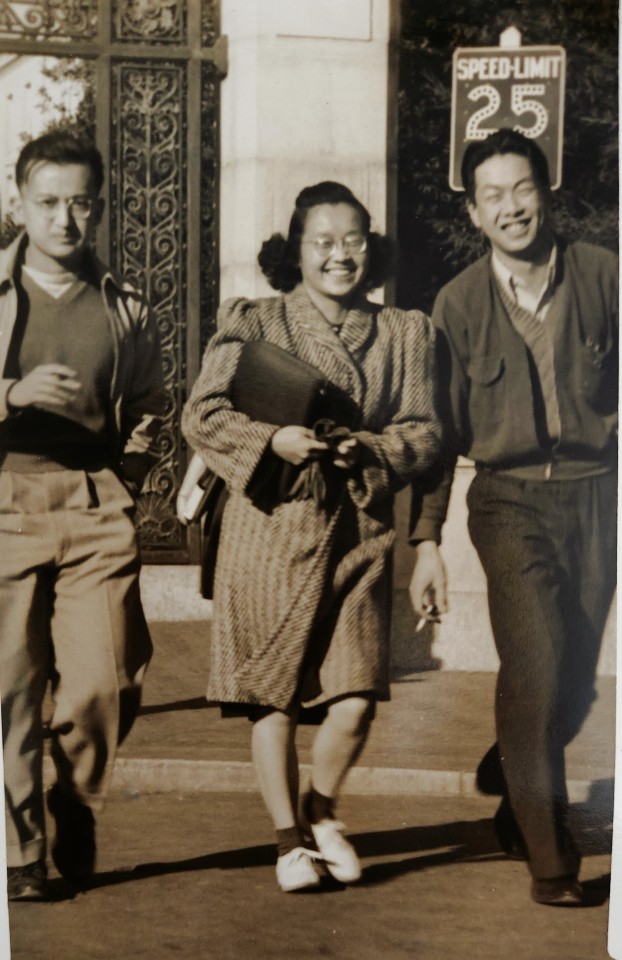
(left to right) "Walter," Phyllis Soohoo, and Kenny Kai-Kee outside Sather Gate on the campus of the University of California Berkeley, c. 1940. Photographer unknown (from the collection of Doug Chan).
War and Mother's Remembrance
In an old photograph, a smiling Chinese coed strolls out of the University of California Berkeley’s Sather Gate, circa 1940. Observing this image, one cannot help but infer that my future mother didn’t lack for male companionship eight decades ago. However, beyond the personal anecdote, the photograph of the trio encapsulates a broader narrative about the adventurous spirit of Chinese American youth who began entering college in significant numbers on the cusp of the Second World War.
The Chinese students who enrolled at Cal in the late 1930’s represented a subset of the second or third generation offspring of the Chinese settlers in California. Despite being a minority, these students embodied the inaugural All-American generation of the Chinese diaspora in the US.
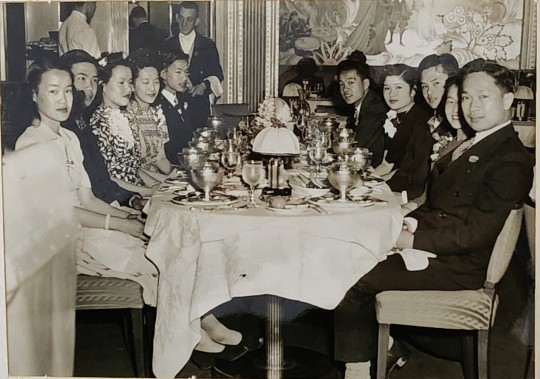
Chinese collegians dine at the Persian Room in the Sir Francis Drake Hotel, June 12, 1942. Hollywood Nite Club Photos (from the collection of Doug Chan). Phyllis Soohoo appears second from right.
The confluence of access to higher education and the backdrop of WWII proved to be a watershed moment for Chinese American youth. The war coincided with the formation and facilitated the ascent of the first Chinese American middle class.
With the outbreak of war, my mother took breaks to work for Shell Oil Co.'s laboratories, where she contributed to the development and testing of waterproofing treatments for equipment such as tents. Alongside other Chinese American men and women on the homefront, she undertook real jobs for the first time outside of the segregated Chinatowns. Her generation garnered newfound respect from their compatriots and the larger society amidst an era scarred by exclusion.
Time and the passing of her generation have dimmed the sacrifices made by many of my mother's contemporaries and, most poignantly, the memories of young men who had served and fallen in combat.
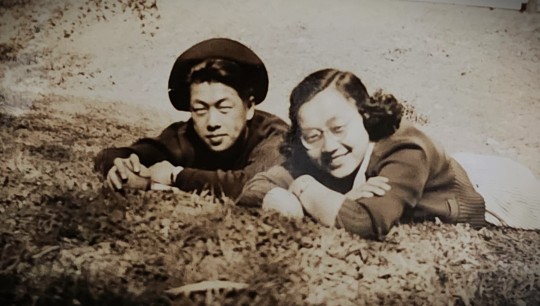
UC Berkeley classmates Kenny Kai-Kee and Phyllis Soohoo at Lake Lagunitas, March 21, 1940. Photographer unknown (from the collection of Doug Chan).
Kenny Kai-Kee was the classmate and a friend seen at the right in my mother's photograph outside of Sather Gate. Remembered as a jovial and talented athlete who secured a spot on Cal's varsity basketball team, Kenny would earn a lieutenant's commission, joining the US Army Air Force in October 1943 and qualifying as a bomber pilot. As recounted in my earlier writing here, this year marks the 80th anniversary of the downing of Kenny’s B-17 to enemy fire over Austria in late July 1944.
My mother, Phyllis Soohoo, was a compulsive archivist. She kept all of the half-dozen photos of her and her former boyfriend, Kenny. She would continue to refer to grief-stricken parents, Lock and Rita, as “Mom” and “Pop,” and send them a Christmas card every year after that terrible summer of 1944. Years later, when her own family went out for dinner in Oakland, she would meet and greet Kenny’s parents on the sidewalks of Chinatown as the old-time families usually encountered each other going to or from dinners at the old Silver Dragon.
Kenny’s remains had been interred initially in a distant plot. The German records recorded a burial first on July 27, 1944, in the cemetery of St. Jakob i. Walde, Austria. More than five years later, Lock and Rita were notified that Kenny’s remains were coming “home” to be re-interred at the Jefferson National Cemetery Barracks. His parents traveled back to St. Louis, Missouri, to witness the re-interment, which occurred on May 15, 1950.
No one can recall if Lock and Rita Kai-Kee ever revisited their son’s lonely grave in St. Louis, so far from family, friends and loved ones. If my mother knew of the location of Kenny’s grave when a cross-country motor trip with her family drove her through St. Louis in the summer of 1964, she never mentioned it. On the two or three times when I had asked her about Kenny, I recall her fleeting, faraway look when she mentioned his name. She and millions of other Americans knew first-hand not only the young men who never returned from the great global conflagration of the 1940s, but the loss, grief, and the waste of war. Like many other Americans who were left behind in sorrow, my mother emerged from the war years with not only her pharmacist's license but also specific, painful reasons to detest the horrors of the global conflict and its waste of life.
Another decade would pass before Mom crossed paths with my father. He had shared none of the transformational experiences of my mother's college cohort. His family had struggled during the years of the Great Depression in San Francisco Chinatown, and he lacked the means, and perhaps the inclination, to pursue university education before enlisting in the US Coast Guard.
Rita Kai-Kee would carry the bitterness of Kenny's loss and the cruelty of war’s cost until her death in August 1983. Lock died seven months later.
After my mother's passing in 2001, my then-grieving father had dispassionately set all of her personal effects, records, and old photos for disposal. I reclaimed a portion of her captured memories from a grim jumble of items he had discarded for the dump. Among the carefully compiled sets of letters and photos about her side of the family, were the small snapshots of her with Kenny. My mother’s archive provided glimpses into a personal life in which Dad had played no part, separated by a ferry ride and later a new Bay Bridge. As such, her mementos formed a sentimental narrative, ending on the eve of her encountering my father in San Francisco Chinatown’s Powell Garage in 1953.
I was brought into the world about a year later. Decades later I would find among a pile of baby gift cards from family and friends the small card sent to my mother by “Mom” and “Pop” Kai-Kee. Their names had been included on the baby announcement list.


The war coincided with the making, and spurred the rise, of the first Chinese American middle class. As the image and condition of the Chinese in America changed, so did its economic opportunities. By 1943 -- the year the Exclusion Act was repealed -- 15 percent of the shipyard workers on San Francisco Bay were Chinese. During the war, Chinese American men and women were working real jobs for the first time in the world’s only industrial behemoth and gaining new respect from their fellow citizens.
The loss of Kenny Kai-Kee, the only son of a pioneering family, was doubly bitter because he exemplified the first All-American generation of Chinese. Death deprived him of the realization that the Second World War proved to be a watershed event for Chinese American youth. The young men and boys who flew in the B-17s of the 8th and 15th Air Forces came home to a Chinese America not quite free of the strictures of white racism, but well on its way to equal rights for Chinese Americans, freed from the Chinese Exclusion Act.
Back in Oakland, Kenny would have heard the laughter of unprecedented numbers of children in the Nation’s Chinatowns. He would have seen his buddies buying houses in gradually desegregating neighborhoods, resuming college careers on the G.I. Bill, and wading into the social and cultural mainstream of postwar America.
We will never know what Kenny could have accomplished had he lived. Had he stayed in Oakland, he probably would have married the love of his short life, raised a family, and grown old. We would have seen him as just another 80-year-old senior citizen, serving up decades' worth of easy banter along with the stacks of pancakes at the Wa Sung Club’s annual Easter breakfast. As a member of one of Chinese America’s greatest generations, he would have made his own contribution.
Instead, we are left only with the perplexing example of the wrenching deaths of Kenny and the thousands of other young men who never made it back home. Such selflessness demands that we ponder the meaning of his brief life and how in our time, beyond the words and through our own deeds, we as Americans can make his death meaningful and us worthy of such a sacrifice.
If the task of reclaiming the history of Chinese America must begin anew with each generation, then the stories not only of gallantry but also of sacrifice should be told again. Each retelling represents a call for new generations, native and immigrant, to engage in a singular act of faith in the future and reaffirmation of hope that the mere utterance of the names will sustain the memories of the lives, the valor, and the sacrifices of the Chinese Americans who marched, sailed or flew in harm's way. Such is the heavy burden on ethnic historians and storytellers to remember the community’s forgotten men in unforgettable ways.
[2024-7-30]
2 notes
·
View notes
Text
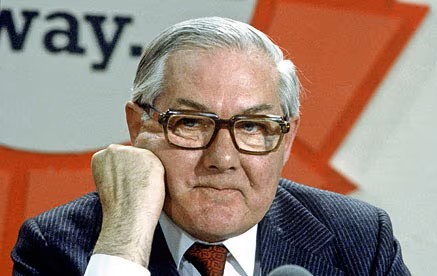
On September 7th, 1978, British Labour Prime Minister James Callaghan confirmed that he would not be calling an early election, despite the precarious stability of his minority government.
"…The government must and will continue to carry out policies that are consistent, determined, that don’t chop or change and that brought about the present recovery in our fortunes…We can see the way ahead…"
Opposition Leader Margaret Thatcher was not best pleased, referring to the government as chickens and stating;
"…The real reason he isn’t having an election is because he thinks he'll lose…"
Even Liberal leader David Steel, whose party had propped up the government through the Lib-Lab Pact, wasn’t happy, stating that the country was due for change and that an election was the only way to breathe life into the four-year-old parliament.
Callaghan had succeeded Harold Wilson in tricky circumstances in 1976. Inflation had peaked at 26% and unemployment was heading toward 1.5 million, a devastating figure in the context of the time although it would more than double by the mid 1980s under the Tories. Callaghan was forced to make unpopular cuts in government spending to comply with terms set out by the International Monetary Fund, after a financial crisis precipitated by the plunging Pound had necessitated an emergency loan. But it wasn’t all doom and gloom, the balance of trade was improving on the back of growing revenue and production from North Sea Oil, which was expected to make the country self-sufficient by 1980.
In the autumn of 1978, the government proposed that trade unions moderate the following year’s pay claims to 5% as a key part of the ongoing fight against inflation, which was by then hovering at 8%. The unions, however, rejected any limits proposed by the Callaghan government and vowed to pursue their right to free and unrestrained collective bargaining. The first major employer to concede over and above the government’s proposed ceiling was Ford Motor Company, which granted an increase of 17% after an initial ambit claim of 25%.
That December, the government received an unwanted Christmas present, when a motion in the House of Commons was carried condemning;
"…the arbitrary use of economic sanctions against firms and workers who have negotiated pay settlements beyond a rigid limit which Parliament has not approved…"
The Civil Service unions, now isolated under government control while private sector companies were free to set their own wage negotiation benchmarks without risk of sanction, prepared for militant action. The ensuing Winter of Discontent strikes created shortages of a number of essential commodities. NHS hospitals, ambulance services, rubbish collection, schools and even funeral and burial services were caught up in transport and related stoppages that created nationwide chaos.

At one point 200 000 workers were temporarily laid off, and rubbish piled high in the streets. By the end of January 1979, the strike ended with employers conceding to almost all of the various unions’ demands.
Into this chaotic atmosphere returned the PM from a summit with US President Carter, French President Valery Giscard d’Estaing and the West German Chancellor Helmut Schmidt. The meeting had been held in the sunny Caribbean Island of Guadeloupe. Callaghan, looking relaxed and unconcerned according to some reports, rather unwisely stated,
"…I don’t think that other people in the world would share the view that there is mounting chaos…"
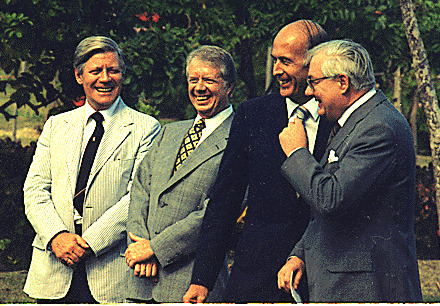
He was rewarded by the famous What Crisis? headline in The Sun.

With an election looming, the government and Trades Union Congress finally made an attempt to publicly reconcile. The new Concordat, issued in February 1979, spelled out guidelines for a new cooperative approach toward dispute resolution, called for restraint in wage demands and set a joint ambition for an inflation rate of below 5% by 1982. It promised more measured picketing and more liberal union control over workforces. Callaghan called this a great step forward, while the Confederation of British Industry, unsurprisingly, said it was too little, too late.
Opposition Leader, Margaret Thatcher, soon seized a golden opportunity to take command of the agenda. She steamed in with motion of no confidence against the government on March 28th, 1979. The motion was passed by one vote, the first such successful motion since 1924. The subsequent general election paved the way for 18 years of Tory government.
Following the inevitable election loss, Jim Callaghan stayed on as Opposition Leader until 1980 when he was succeeded by Michael Foot. He subsequently served in the Lords as Baron Callaghan of Cardiff and passed away in 2005, aged 92.
#social history#uk politics#working class history#uk government#society#british culture#uk history#history#british prime ministers#trade unions#industrial action#protest
7 notes
·
View notes
Text

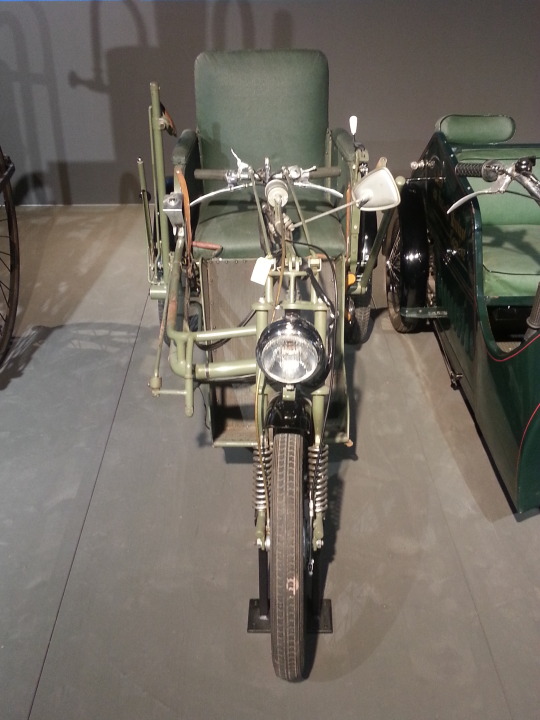
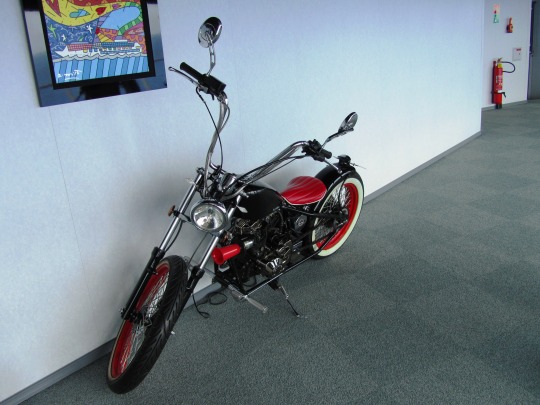

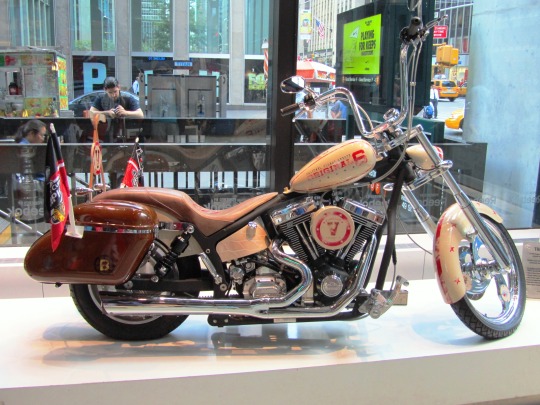

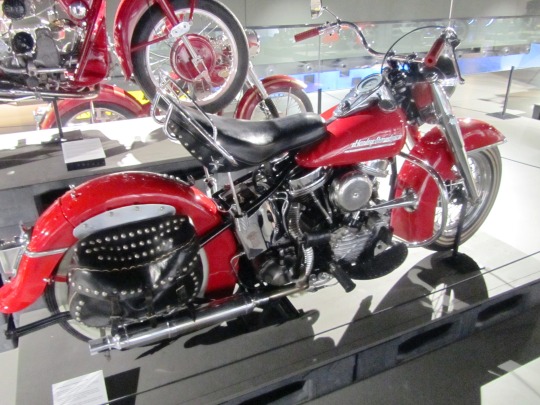
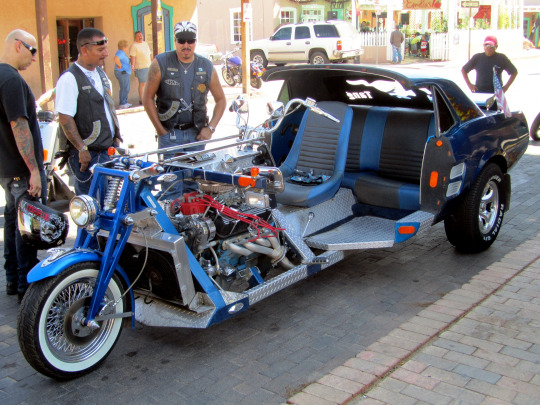
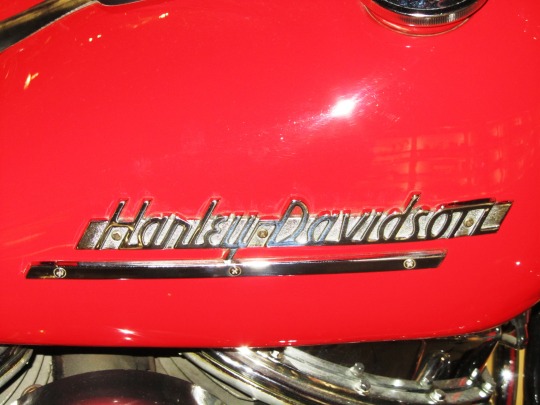


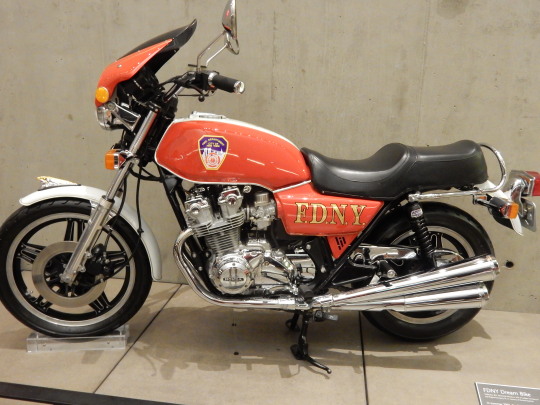
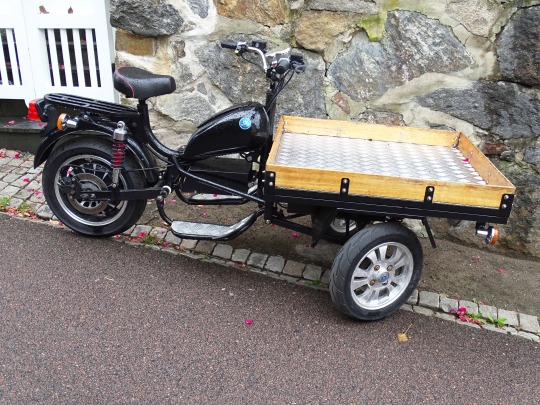
National Motorcycle Ride Day
The second Saturday of October is celebrated as National Motorcycle Ride Day and aren’t we all grateful for this blessing of a day. The first motorcycle was built in 1885 in Germany and has been dominating the roads ever since. Their popularity has brought about various motorcycle types, the major ones being street, off-road, and dual purpose. These are further divided into many subtypes; these subtypes often have a racing counterpart.
History of National Motorcycle Ride Day
For many, the motorcycle is more than a means of transportation, it is an experience, a feeling, an adventure like no other. It is often associated with emancipation, the desire to break free from all the chains. It comes as no surprise the motorcycle has managed to secure its place in everyone’s heart. It is one adrenaline-filled ticket to your freedom.
The first motorcycle came into existence in 1885, when Gottlieb Daimler and Wilhelm Maybach, two German inventors, built an internal combustion gasoline-fueled motorcycle. It was named “Daimler Reitwagen” (riding wagon), the first of the modern motorcycles that we all know today. This invention inspired many others, who began making their versions of the self-propelled bicycle.
In 1894, Hildebrand & Wolfmüller became the first series production motorcycle. Soon, other big companies joined the bandwagon, such as English Royal Enfield, Triumph, American Harley-Davidson, Indian Motorcycle Manufacturing Company.
Motorcycle production escalated during the First World War, to improve communication systems with front-line troops. Motorcycles replaced messengers on horses with dispatch riders who carried messages, conducted reconnaissance activities, and acted as military police. After the Second World War, the motorcycle industry experienced widespread popularity brought about by lower costs, engineering advancements, and better road networks.
Today, motorcycles represent one of the most affordable forms of transport all across the planet, with Asia-Pacific and Southern and Eastern Asia regions dominating the market. The evolution of the motorcycle from being an instrument of transportation to a thrill-packed adventure machine is why it deserves a special day of appreciation. And the month of October gives us the perfect opportunity to celebrate the wonders of this great invention.
National Motorcycle Ride Day timeline
1867
The First Coal-Fired Steam Engine Motorcycle
The Velocipede is a two-cylinder, steam-powered motorcycle.
1894
Officially Named
German company Hildebrand & Wolfmüller are the first to call it the “motorcycle.”
1903
Harley-Davidson
William Harley and his friends Arthur and Walter Davidson launch the Motor Company.
2015
National Motorcycle Ride Day
The holiday is founded for celebrating riding motorcycles in the fall weather.
National Motorcycle Ride Day FAQs
Is it difficult to ride a motorcycle?
Riding a motorcycle isn’t at all difficult. Although it may take some time to adapt to the motorcycle’s weight, controls, and maneuverability. For a beginner, it can take between two to eight weeks of daily practice to learn how to ride a motorcycle safely.
How much does it cost to maintain a motorcycle?
Costs come around $1,000 a year which includes regular maintenance (oil changes, chain maintenance, etc.). This needs to be done every 5,000 to 20,000 miles depending on the motorcycle.
Is it safe to ride a motorcycle in the rain?
One must steer clear of riding at the beginning of a storm, as the roads are full of brake fluid, oil, dirt, and other grime before it rains. Drive extra slow just after the storm begins when it’s still raining.
National Motorcycle Ride Day Activities
Join a riding groupTeam along with other enthusiasts to celebrate this day. Participate in riding events and discover a whole new world of adventure.
Plan a tripIt’s time to take that trip you have been planning for years. Search for the best and the most scenic places to ride the motorcycle.
Meet up with other ridersEverything gets better if you have someone to share it with. Connect with other bikers and plan activities together. Make the celebration a year-round event.
5 Interesting Facts About Motorcycles
Yamaha manufactured pianosYamaha is a multinational conglomerate that still produces musical instruments.
Tomato soup can carburetorA tomato soup can was used as a carburetor in the first Harley Davidson motorcycle.
Motorcycle theft monthsThe highest number of motorcycle thefts happen during July, August, and September.
The longest motorcycle jumpThe record for the longest motorcycle jump was set by Robbie Maddison in Melbourne, Australia, jumping 346 feet.
Harley-Davidson is the leading motorcycle manufacturerHarley-Davidson is the leading motorcycle manufacturer, producing 5.6 billion dollars in revenue in 2017 in the U.S. market.
Why We Love National Motorcycle Ride Day
Motorcycles are fun: The feeling of riding the wind cannot be put into words, one has to experience it themselves to know it. The exhilarating ride is enough to feed the starving soul. So if you want to experience what true freedom feels like, hop on and go wherever the road takes you.
They are affordable: Unlike the costly supercars, motorcycles can be extremely affordable, without cutting out the fun. They are an easy and affordable form of transportation that will get the work done without burning a hole in your pocket.
Motorcycles are environmentally friendly: Motorcycles are considered an environmentally friendly mode of transportation. Their low fuel consumption and lower per-mile carbon emissions make them a friend to the environment. Giving you a guilt-free adventure-packed ride that you need.
Source
#Quesnel#National Motorcycle Ride Day#NationalMotorcycleRideDay#14 October 2023#second Saturday in October#Verkehrshaus der Schweiz#Switzerland#USA#New York City#Allure of the Seas#Route 66#original photography#bike#motorcycle#Harley Davidson#Old Mesilla#Paradise#Las Vegas#summer vacation#indoors#outdoors#Sweden#Canada
2 notes
·
View notes
Text
Heron by Carl Olsson
Arrangement
Heron of Alexandria invented a mechanical theatre. 1900 years later, I have created a hydraulic successor and with it I have given Heron over to his torture.
In short, I have arranged a device for the compression of birds.
There is in this machine a relative of the egret. Every time I peer into my garden, I see the retracted neck atop its pedestal.
According to the instructions that should have been passed down from Heron (but were not), to arrange an automatic theatre one needs a tight latex suit and a ball gag – one with repurposed breathing holes.
Heron never managed to write this, but I can write it now:
Let there be wine and white milk spurting out of the beak and mix in a pool below for others to ingest.
This takes place as follows: Two small pipes are attached beneath the bird’s feet, protruding from two holes in the surface of the pedestal. Let the pipes extend upward, past the folded legs, into the latex integument and through the cavities of the bird with their openings attached to inward face of the ball. Wine and milk is pressured through these pipes to pour out of the gaping beak.
The automaton takes is driven by the movements of the body inside the latex integument whose energy it harnesses to power the action of a pump.
About the movement of the theatre, Heron should have written that the pedestal slides back and forth on a rail, pulled by knotted ropes drenched in oil. And I say now in addition, let the inside of the latex integument also be covered in a generous amount of oil. That is, behind the latex there is a need for lubrication, though I must add that it should never be so much as to spill behind the gag, for that is the domain of the two pipes that exude wine and white milk and it may not be contaminated by any other liquids. The innermost space must thus be parched aside from wine and white milk (one might devise a motorized pump to extract bodily effluvia in the opposite direction (these are to be discarded and never seen by any audience)).
Against an arrangement such as the one described here the first threat is a rapid expansion of the compressed state. Although the relative of the egret has come to enjoy its situation with time (or has at least accepted it), until then the threat of uncontrolled expansion remained very serious. To avoid it, I used to stand for a time in the garden and examine my hydraulic display on a daily basis. I still polish its exterior and add oil when it is needed but with far less urgency. That way, the arrangement can be maintained for a long time and I will not grow bored of its appearance.
Principles of sympathetic torture
Heron of Alexandria was a first-century mathematician, inventor and the author of numerous technical manuscripts including two treatises on the construction of automata. An automaton in the relevant sense is a mechanical imitation of life. Ancient and medieval automata were spectacular instruments of wonder, built to bedazzle foreign envoys and royalty.
My hydraulic Heron owes its existence to a German by the name of Moritz Schreber. In the middle of the 19th century, Schreber brought the history of automata to its virtual termination by creating various contraptions that reduced human children to little engines. His machines were built to be moved by children and to move the children in turn. Whereas an automaton mimics life, life now came to mimic the machine. So rather than remedying newborn bodies maligned by the overcrowded cities of the industrial age, which was Schreber’s official motivation for building his contraptions, he unwittingly short-circuited the distinction between animal and machine by giving purposeless labor its proper purpose in augmenting purposelessness. The history of the automaton really ends at the modern gym, where it becomes a tributary to the history of corporeal punishment or gratuitous torture.
A still unmentioned fact is that the arrangement with the relative of the egret described above was recorded with a hundred chameleons attached to the surrounding walls with duct tape. I did not mention it because such pictures never last for long and for fear of compromising the secrecy that is absolutely indispensable for constructing automata today.
But now that it is done and Truth has fallen on the history of Heron’s mechanical theatre, I can divulge its essential principles with perfect clarity.
The first principle completes the history of automata by inverting it, turning it back against life. The mechanical theatre with the hydraulic Heron is more than an image of life, it is life broken into an image of life as it reaches the high-point of second-order mimicry. Schreber, on his part, went just this far.
The second principle is shared with sympathetic magic.
Belief in magic is not required to appreciate the hydraulic Heron. On the contrary, it is magic which relies on the affinity of apophenia and the psyche, the innate tendency to believe that an image and its likeness really belong together.
Today no one can believe in the psyche, in consciousness, in magic or in anything like that.
All that remains after these ghosts were eliminated from our shared vocabulary are the formal rules of correspondence and association, capable of cutting across time. These rules are real.
This is to say
That
The first principle operates through the second principle;
That
The history of the automaton is completed through an inversion that mimics the mimesis of life in the sense that it reenacts, and therefore undercuts, the act of connecting Like to Like.

4 notes
·
View notes
Text
"is to get in first with motor ships before the Germans! Owing to our apathy during the last two years, they are ahead [with internal combustion engines]! They have killed 15 men in experiments [with oil engines] and we have not killed one! And a d—d fool of an English politician told me the other day that he thinks this creditable to us!"
Jacky Fisher wrote letters like teenage girls text. I've seen instances where he used five exclamation points. Admiral, you desperately needed estrogen.
3 notes
·
View notes
Note
Can I get a #3, a #9, a #14 and a #20 of the Oc ask for a Romulus and Colbat combo? Ich tausche mit Ihnen im Voraus Kekse.
my partner is learning german and they were thrilled to be able to translate this for me dfjkhgd
Cobalt would love to share a cookie (Romulus is like a feral kitten and has to be coaxed out of the gutter however)
3. How would they describe love?
answered here for Romulus! :)
As for Cobalt, love is difficult for him to describe. It's confusing. It's something that comes naturally to him but it's scary. How can something feel so freeing and exciting but also so demanding and claustrophobic? He sees his younger brother with his wife and his family and he knows that's what love is supposed to be. He almost had that with his childhood best friend once they had grown up a little, but where Mercedes wanted to settle down, Cobalt wanted the freedom to roam. He was too young and there was still so much to see, he explained. He loved her dearly but he loved the idea of the world, too.
9. Do they think they’d make a good parent, regardless of whether they want kids or not?
Romulus fears becoming his father. What if having a kid flips a switch and turns him cruel and distant, just like Lupus? It was the only example he ever had so what if he gets it wrong? So, no, Romulus thinks he would make a poor excuse for a parent.
Cobalt thinks kids are great; they're funny, they're creative, they're brutally honest in the most innocent way. He absolutely adores his nieces and nephew and loves being the cool uncle. However, he can't see himself having kids; it's a responsibility he doesn't want to have. He does think that, maybe, he'd make a cool dad, but he'll never find out and he's okay with that.
14. What smells or tastes do you associate with them?
Romulus gets the obligatory leather and motor oil smell 90% of my ocs have, since he actually works on and maintains a motorcycle. Under all that, the sagebrush that thrives in the Mojave.
For Cobalt, it's fresh pine mountain air and the slight smell of smoke that lingers for the briefest of moments after firing his bow. Also, potentially, burnt hair whenever Dyna's explosive arrows don't work like they should.
20. Would they make vines if they could?
Despite probably having great e-boy potential, Romulus wouldn't really care to make them.
Cobalt, however, is a massive social butterfly and would eat that shit up. In modern aus he's a travel blogger and loves the attention social media gets him. He would love to make stupid little vines.
ask meme :)
2 notes
·
View notes
Photo


BYD Dolphin Euro version is slighter larger and more powerful than the Chinese, China, 2023. Source: carnewschina.com
Quote: /The Euro-Dolphin, however, has a 150 kW motor and a 60 kWh Blade battery. This is the same electric drive train as in the Euro-spec Atto 3. The car also shares the 2.7-meter wheelbase of its Chinese cousin. But when it comes to the length, BYD inflates the Euro-Dolphin to 4.29 meters, almost a 20 cm increase. Most prominent is the new front end, where most of the extra centimeters go, but there is also a thicker rear bumper. With this new length, the Euro-Dolphin is longer than a Volkswagen Golf, ID.3, or an MG 4. So suddenly, it has become a C-class car(..)/ Source: https://carnewschina.com/2023/04/17/byds-inflatable-dolphin-why-euro-version-is-larger-than-the-chinese/
P.S. Considering how high the prices of the gasoline engine VW GOLF VIII and the electric VW ID.3 are on the European car market, the German car manufacturer is in real trouble..., but there is also good news: China-made affordable electric cars with LFP batteries are slowing the growth of the Kremlin's oil business...
#BYD Dolphin#affordable ev#Chinese EVs#electric hatchback#electric vehicle#fossil fuel phase-out#electric car#demise of legacy automakers#demise of big oil#russian defeat
2 notes
·
View notes
Text
A Good Start
Egotober Day 1: Hoodie
a03 link
Henrik pulled the covers over his head trying to block out the sounds from outside his room. The light was He could tell his brothers were arguing. Over what, he really didn’t care. He just wanted to stay in his bed forever. His weighted blanket crushed him down into the plush mattress. How he missed the luxuries of common life.
Just 3 months ago he was sleeping on a mattress Anti must have found in a dump. The smell of mildew and mold filled his every breath. Every now and then an old needle would poke and penetrate his skin, sending small drops of crimson blood on the floor. The horrid thing was so hard and stiff it made him feel like he was sleeping on a slab of granite. But it was still somehow better than sleeping on the cold floor.
“You have to understand Jackie-” Marvin’s voice boomed through the door. Henrik sighed as he pushed a pillow over his ears. Why did they have to argue? When did his big brothers become so jaded? All he wanted was for them to come in and wrap their comforting arms around him and tell him everything will be okay. They used to be able to read his mind, know exactly what he needed at any given time. Now, they can barely communicate with each other.
A soft knock came at his door. Henrik peeked out from under his blankets as his younger brother walked in. The familiar t-shirt flat cap combo came into his room like he owned the place. Henrik felt the entire mattress bounce as Chase jumped onto the bed like a child.
“Henrik!” He sang with pride “ I come bearing gifts!” Henrik sat up against the plush headboard that Marvin had gotten him just last week. He shifted the blankets so he could have some form of a shield. Chase plopped down a pile of fabric, snacks and his switch.
“We are going to have a good day in your bedroom. No moping around!” Chase walked over to the window pulling the curtains open and pulling the window inside, letting all the morning light and fresh air in. “I have breakfast on its way, an omelet with potatoes and spinach and a big old german apple pancake, so we can just eat that for breakfast. I stole Jackie’s favorite hoodie so you have something nice and comfy to wear, and I brought the switch so we can play Super Mario Brothers alllll day.”
Henrik smiled as he grabbed the red hoodie pulling it over his chest. Every square inch smelled like Jackie. The warm familiarness of fresh baked pizza, motor oil and cinnamon filled his senses. The plush softness of the hoodie silencing the feeling of bugs crawling on his arms. Chase’s arm slung over his shoulder squashing the bugs for good.
“Hey, I’m really sorry that Jackie and Marv are yelling. They’re just trying to figure stuff out.”
“They argue so much these days.” Henrik whispered. He pulled his arms out of the sleeves of the hoodie and towards his chest. What happened to the dynamic duo? What happened to the heroes and protectors of the house?
“Nah they’re not arguing. Jackie was a dumbass last night, and got into a big fight with no back up. He’s fine, don't worry. Marv is just being concerned.” Henrik sat up a little bit as Chase set the blue and red controllers up.
“He-He is okay now, yes? You-You would have woken me if he was hurt right?” Henrik stumbled across his words. He cursed himself for stumbling over his words. It was just Chase there was no need to pick and choose what words he said or try to hide his accent.
“Yeah, Hen. Don’t worry, he just had a few scrapes. Now, let's focus on you. The hoodie good? All nice and comfy?” Henrik leaned into Chase’s touch, his thumb gently rubbing against his arm. Henrik hummed and nodded against Chase’s chest.
“Yeah? I’m glad.” Chase booted up the switch and the familiar tune of Mario’s theme song filled the air. “I wanted to make your day just a little brighter.”
“Hey, Henrik? Uh, I got your food.” Jackie called from behind the door. “Can I come in?”
“Yeah bro! Come in!” Chase shouted. Jackie walked in with a brown paper bag with a big white label on it, as well as a wooden tray. He set it down and sat on the edge of the bed. Chase set the tray up over Henrik’s lap and placed everything out for him. Henrik sat in aw over the kindness that his younger brother was displaying. Most men would have crumbled and become cruel after everything he went through but he decided to focus his energy into making other happy.
“All ready for you Henrik!” Chase smiled. Henrik grabbed the fork and knife and began cutting into the omlet. Jackie reached over taking a piece of the huge pancake. Chase promptly swatted his hand away.
“Hey! Hey! This is not for you,” He laughed “Its for Henrik.”
“Henrik,” Jackie whined bringing a smile to Henrik’s face “Can I pretty please have some of your ginormous pancake?”
“Fiiine.” Hernik groaned. “You can have a tiny, itty, bitty piece.”
Jackie smiled as he took nearly half of the huge pancake and pushed the rest aside. He picked up the spare fork and shoved the fluffy food into his mouth. Henrik and Chase exploded into joyous laughter as they watched Jackie attempt to swallow the massive chunk he took.
“Hey! That’s not fair! You stole my breakfast!”
“Well,” Jackie started once he swallowed his breakfast. “You stole my hoodie. So fair is fair.”
Jackie rose from his spot and sat on Henrik’s free side making him into a nice little sandwich.
“Yes. I suppose fair is fair.” Henrik smiled.
And with that Chase handed Henrik the controller letting him start the game. Henrik smiled and settled into bed, knowing that today would be an amazing day.
Prompt by: @tracobuttons
#Made a new blog because tumblr decided not to put my writing in their tags#jacksepticeye#writers of jack#parks writes#henrik von schneeplestein#chase brody#writersofjack
5 notes
·
View notes
Text
Golf mk4

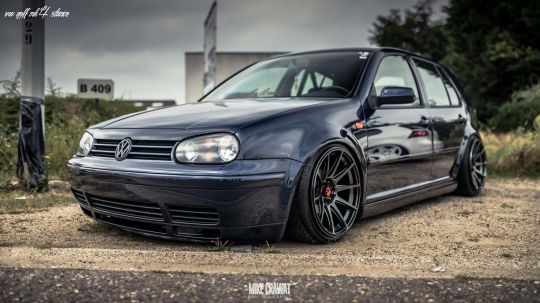
Cars that didn't cut the mustard: The modern-era motors on sale in the UK for the shortest time before being culled from showrooms.
Mecca Bingo owner Rank to get tax rebate of over £80m from HMRC in slot machine VAT refund saga.
New York-based private equity giant Apollo Global Management is mulling a buyout of Marks & Spencer.
Raising airport charges would force us to reconsider our presence at Heathrow, warns IAG boss.
MPs believe sale of Arm to Nvidia is unlikely to go through and would welcome its return to the stock market.
Bank of England Governor Andrew Bailey hits back at claims of being an 'unreliable boyfriend'.
BHP forges deal to sell its oil and gas to Woodside to create one of the world's largest independent energy producers.
Competition watchdog puts brakes on British Airways' owner's £450m acquisition of Spanish budget carrier Air Europa.
Company that uses data to monitor physical activity and encourage people to play more sport plans to list on the London market early next month.
BUSINESS CLOSE: Bulb Energy faces collapse Powell nominated for second term at Fed LV board defends Bain deal.
Interactive Investor launches friends and family plan: Existing customers pay extra £5 a month to gift free membership to up to five people.
Probe reveals new hybrid cars with higher levels of harmful emissions than diesels, as Dispatches discovers some public chargers out of service for years.
Can it pay to be a serial bank switcher? Here are five current accounts with the juiciest sign-up bonuses and how to take advantage of them all.
Bulb Energy with 1.7m customers becomes biggest gas and electricity firm yet to go into administration as Government agrees to prop it up.


Ferrari unveils stunning new Daytona SP3 supercar that's a £1.7million tribute to its racers that took revenge against Ford in 1967 - and all 599 are sold.
Cynergy Bank launches new best buy easy-access savings deal offering the highest rate for more than a year.
Bank network shrinks by 267 branches in three months: Could your local branch be next on the chopping block?.
Can I take 25% tax free cash from my £1m retirement savings, without touching my final salary pension? Steve Webb replies.
By the time production on the Mk4 ceased, Volkswagen had put 4.99 million units on the road.ġ997 Extremely high body quality levels, achieved by elements including laser weldingġ997 Navigation system with large color screen for the very first timeġ998 Introduction of the optionally available Electronic Stability ControlĢ002 First Golf with direct petrol injection engine (FSI)Ģ002 Debut of the Golf R32 as sporty, top-of-the-range modelĢ003 First dual clutch gearbox (DSG) in Golf R32Ģ003 Phase-out of the fourth generation after 4. It was the first Golf to face serious competition in the C-segment thanks to Ford and Opel launching the 1st-gen Focus and 2nd-gen Astra, respectively, in 1998. In the end, the Mk4 will go down as one of the most important generations ever. It preceded the Golf R32, which arrived the following year with a new VR6 engine, a top speed of 155 mph (250 km/h) and, for the first time in a Golf, a dual clutch DSG gearbox. In 2001, the 180 PS Edition 25 was launched to mark the GTI’s 25th anniversary. The GTI switched to a turbocharged 1.8-liter with 150 PS. While the German automaker didn’t build an actual Cabriolet version of the Mk4, carrying over the third-gen with a fourth-gen-like front end instead, the compact hatchback was available as a three-door, five-door and estate. Its platform was also used for the first-generation Seat Leon and Skoda Octavia, two models that allowed V-Dub to market the Golf Mk4 as a more upscale product, which was by no means a stretch since interior quality was on par with that of the Mk1 Audi A3. Like with its predecessors, there were multiple body styles to choose from, as well as derivatives such as the fourth-gen VW Jetta (Bora). In time, ESC became standard and direct injection gasoline engines (FSI) were made available.Īlso Read: VW Golf Countdown: 1991-1996 Mk3 Was Full Of Safety First But Not The Most Memorable Drive In 1999, it gained a 6-speed gearbox for the first time, but not before receiving a sat-nav system with a large color screen. It had features such as Electronic Stability Control (ESC) and brake assist and became the first Golf to utilize VW’s new 4MOTION all-wheel drive system. In fact, three years after its launch, it became Europe’s best selling car thanks to its high-quality interior and strong equipment levels. As we continue to count down to the launch of the new Golf Mk8, we arrive at the fourth-generation model, a car that signified Volkswagen trying to take the nameplate to a whole different level in terms of quality.ĭeveloped in the mid 1990s, the Golf Mk4 made its debut in 1997 and became an instant hit.

3 notes
·
View notes